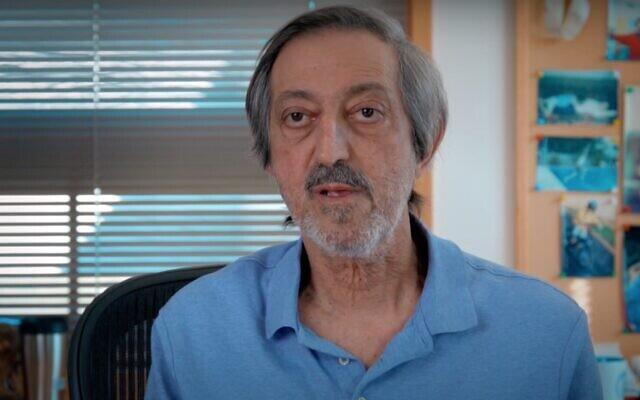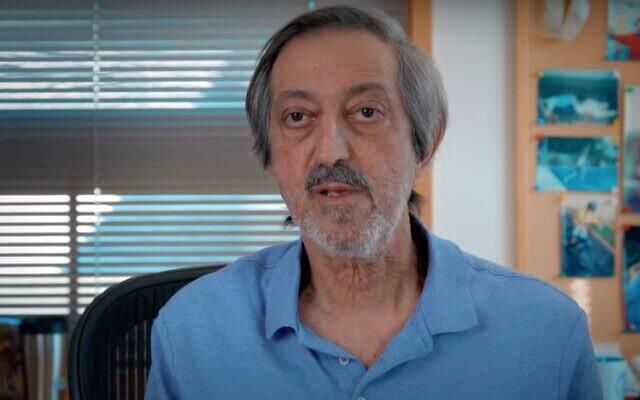
Israeli mathematician Avi Wigderson wins 2023 Turing Prize for insights into randomness
The award is the highest honor in computer science and is often referred to as the ‘Nobel Prize of Computing’
Israeli mathematician Avi Wigderson has been awarded the 2023 Turing Award for Outstanding Contributions in Computer Science for his work on understanding how randomness can improve and shape computer algorithms.
“The [Turing] committee fooled me into believing that we were going to have some conversation about collaborating,” he said. “When I zoomed in, the whole committee was there and they told me. I was excited, surprised and happy.” Wigderson also won the Abel prize in 2021 with László Lovász for their mathematical contributions to computer science.
1 View gallery


Screenshot of Avi Wigderson as he talks about being awarded the Abel Prize in 2021
(Photo: YouTube)
Wigderson was born to Holocaust survivors in the Israeli city of Haifa in 1956 and completed his undergraduate studies at the Technion, graduating in 1980. He went on to graduate study at Princeton University and now serves as a Herbert H. Maass Professor in the School of Mathematics at the Institute for Advanced Study. His research interests include complexity theory, parallel algorithms, graph theory, cryptography, distributed computing, and neural networks.
"A leader in theoretical computer science research for four decades, Wigderson has made foundational contributions to the understanding of the role of randomness and pseudorandomness in computation,” says ACM citing three specific papers he has written. “The impact of these three papers by Wigderson goes far beyond the areas of randomness and derandomization. Ideas from these papers were subsequently used in many areas of theoretical computer science and led to impactful papers by several leading figures in the field."
The $1 million award has been granted annually by the Association for Computing Machinery (ACM) since 1966, with recent financial support from Google. The award is named after British mathematician Alan M. Turing who articulated the mathematical foundations of computing.













